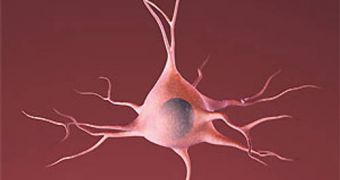According to a new set of scientific studies, the lower portions of the human digestive tract can be artificially stimulated to produce new neurons, a find that may lead to the development of new, groundbreaking treatments for a broad range of intestinal disorders. Details of the new study, conducted on unsuspecting mice, are published in the August 5th issue of The Journal of Neuroscience.
In the first research ever to prove beyond a doubt that the adult gut can produce new neurons, scientists have shown that drugs based on chemicals similar to the neurotransmitter serotonin have a direct stimulating effect on new neuron production in the gut's walls. These neurons play a crucial part in controlling a vast number of actions that is performed daily inside the human gastrointestinal system.
“This is the first time that a treatment with a serotonin-related drug has been shown to add neurons to the adult enteric nervous system. Conceivably, treatment with compounds of this type can be used in the future to help repair a damaged or congenitally defective enteric nervous system without resorting to an invasive procedure,” Columbia University experts Mintsai Liu, DDS, and Michael D. Gershon, MD, who are also the principal authors of the new journal entry, say.
The new line of research could be of tremendous help to the millions of people suffering from conditions related to their intestines. It is estimated in statistics that about 25 percent of American citizens have some daily hindrance due to gastrointestinal disorders. Additionally, employer records have revealed that this type of condition is the second most common reason for employees missing at work, right after the common cold.
“The finding not only suggests that new enteric neurons can be generated in the adult, but that activation of the serotonin receptor is required for this process. The enteric nervous system has a very large number of neurons, yet we know very little about their progressive loss during life and whether they can be regenerated,” University of California in San Francisco (UCSF) stem cell neurobiology and developmental neuroscience expert Arturo Alvarez-Buylla, PhD, concludes.

 14 DAY TRIAL //
14 DAY TRIAL //